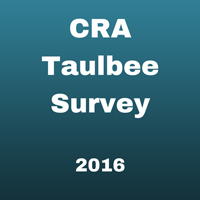NAS Report Investigates the Growth of Computer Science Undergraduate Enrollments
By Susanne Hambrusch, Purdue University
Since 2006, computer science departments in the U.S and Canada have experienced a surge in the number of undergraduate majors and course enrollments. The resulting strain on departmental and institutional resources has been significant for many departments, especially with respect to faculty hiring and overall workload. The National Academy of Sciences (NAS) has recently addressed the issue with the release a report titled “Assessing and Responding to the Growth of Computer Science Undergraduate Enrollments.”
The NAS report discusses strategies central for managing enrollment and resources, and makes recommendations for departments and institutions. Its findings and recommendations provide much-needed guidelines on how institutions can allocate resources to meet growing student demand and to adequately support their computer science department in the increasingly central role of computer science in education and research. “The way colleges and universities respond to the surge in student interest and enrollment can have a significant impact on the health of the field,” said Susanne Hambrusch, co-chair of the report’s committee and a professor of computer science at Purdue University. “While there is no one-size-fits-all answer, all institutions need to make strategic plans to address realistically and effectively the growing demand for the courses.”
The report uses data from multiple sources, including CRA’s recent Generation CS Report on undergraduate enrollments, CRA’s Taulbee surveys, national degree completion statistics (IPEDS), the U.S. Bureau of Labor statistics, the HERI/CIRP Freshman Survey, and Burning Glass. Notable findings of the report include:
- The number of bachelor’s degrees rose by 74 percent between 2009 and 2015, compared to 16 percent growth across all fields. During the same time period, the number of Ph.D. degrees rose by 21 percent.
- While in 2009 about 45 percent of the Ph.D.s accepted a job in industry, 57 percent did so in 2015. The percentage of new Ph.D.s accepting a tenure-track faculty position in the U.S. is below 20 percent. Hiring and retaining CS faculty is currently an acute challenge that limits institutions’ abilities to respond to increasing enrollments.
- The undergraduate growth has not been uniform across institutions. On average, institutions with very high research activity have experienced the greatest growth in degree production between 2009 and 2015 (by 113 percent).
- While the percentage of women and underrepresented minorities completing bachelor’s degrees has not seen increases in the last decade, there is evidence of increased representation among current majors and students interested in CS.
The report summarizes and contrasts a number of ways departments and institutions can manage the impact of the enrollment surge on needed resources. This includes faculty, teaching faculty and lecturers, teaching assistants, staff, classroom, lab and office space, and other necessary resources and support. The report cautions institutions from imposing strict limits on enrollment or accepting students with the promise of entering a major when resource constraints make their admission into the program unlikely. Limits can create an environment of real or perceived competition among students who desire to enter a program, can disproportionally discourage participation among underrepresented groups, and have undesired long-term impacts. The report also explores various strategies including a recommendation that larger research institutions explore creating a college of computing.
“Every approach has benefits and costs, and leaders will need to select strategies and make trade-offs that are appropriate to their mission and values,” said committee co-chair Jared Cohon, university professor and president emeritus at Carnegie Mellon University. “We hope our report will be useful as leaders plan for the future role of computer science at institutions of higher learning.”
Computer Science’s Growing Role in Society
Not surprisingly, the NAS report does not make a prediction on whether and when the enrollment surge will level off and whether student interest in computing will decrease. However, given the growing role computing plays in all sectors of the economy, academic disciplines, and aspects of society, broad opportunities in computing are expected to continue and drive undergraduate enrollment both in courses and programs. The approach institutions take in dealing with the surge in enrollment will have a significant impact on future enrollments and the health of the field.
Many of the report’s recommendations are addressed to the leaders of institutions of higher education and federal and state government agencies. Institutional leadership should take deliberate actions to address the enrollment trend with a sense of urgency. This includes engaging directly with computer science departments to develop appropriate faculty size targets, develop strategies to improve faculty retention, and make realistic faculty hiring plans. Increasing the number and enhancing the role of academic-rank teaching faculty should be given serious consideration. Institutions and departments should also leverage the increasing interest in computer science to engage, recruit, and retain more women and underrepresented minorities and proactively address the diversity problem.
A clear message of the report is that failure to address the demand and the related resource challenges will result in negative conditions for students, faculty, the programs, and/or the institution as a whole in the near or long term.
The NAS committee was co-chaired by Jared Leigh Cohon, Carnegie Mellon University, and CRA Vice Chair Susanne E. Hambrusch, Purdue University. It also included CRA Chair Susan Davidson, University of Pennsylvania, former CRA board members Tracy Camp, Colorado School of Mines; David E. Culler, University of California, Berkeley; and Valerie Taylor, Argonne National Lab, as well as Brian Blake, Drexel University; Brian K. Fitzgerald, Business-Higher Education Forum; Ann Q. Gates, University of Texas at El Paso; Charles Isbell, Georgia Tech; Clas A. Jacobson, United Technologies; Michael S. McPherson, Spencer Foundation; Eric Roberts, Stanford University; Jodi Tims, Baldwin Wallace University; and Sara E. Turner, University of Virginia.



